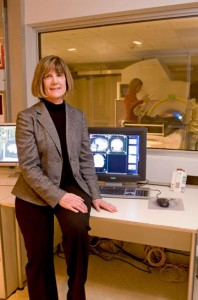Dr. Martin is not accepting new graduate students for the 2026-2027 academic year.
Randi Martin. My major research interests are in the cognitive neuroscience of language and working memory. One continuing interest has been in the question of whether there are separable short-term storage systems for maintaining different kinds of verbal and nonverbal information. Within the language domain, this research has focused on distinguishing phonological and semantic short-term memory systems and their role in language production and comprehension. A related topic is the role of executive processes in language, focusing on inhibitory and task shifting abilities. These topics have been investigated through: 1) standard behavioral studies of young and old neurally intact individuals, 2) studies of brain damaged patients with language or working memory deficits, 3) functional MRI studies of healthy and brain damaged patients, and 4) transcranial-magnetic (TMS) studies involving the transient disruption of processing in healthy individuals.
In the neuroimaging studies, we have been using cutting-edge multivariate techniques (MVPA and RSA), which analyze the pattern of activation across small subregions of the brain to determine those regions involved in maintaining different types of information. We are also using voxel-based lesion symptom (VLSM) mapping to address a similar issue by relating the brain regions damaged for patients with different types of working memory deficits.
Two recent projects have gone in new directions. One project involves analyzing the degree of modularity of overall brain organizations across individuals and relating that to task performance. Our findings suggest that a highly modular system is for better performing simple tasks whereas a less modular, and more interactive system, is better for performing complex tasks. We are currently applying this approach to study individual differences in sentence comprehension. A second project, which has major NIH funding, examines the recovery of language, working memory, and executive processes from the acute stage of stroke to one-year post stroke, relating behavioral performance at different timepoints to damage to cortical regions and fiber tracts connecting those regions.

Yu Lu. Yu is a fifth year graduate student in the Fischer-Baum and Martin Lab. She received a B.S. in Psychology from Lehigh University in 2020. Her research interests include understanding the mechanisms underlying predictive language and exploring cross language differences. Her research involves behavioral testing with cognitively healthy individuals and people with aphasia.
